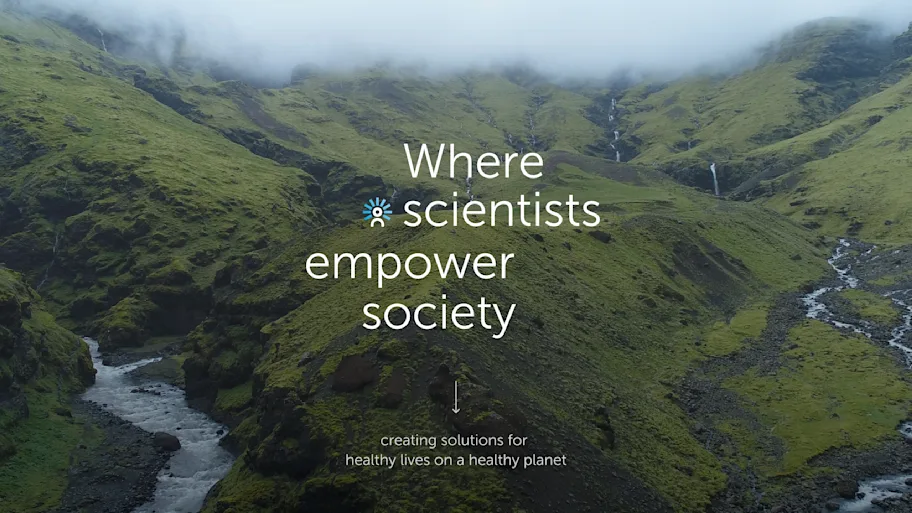
- Science News
- Frontiers news
- 2023 in review: a message from our CEO
2023 in review: a message from our CEO

In 2023 we worked more closely with our research communities than ever before and fortified our strong quality foundations even further. As the year draws to a close, I’d like to reflect on some of our key insights and developments – as we remain committed to our mission and leading the full transition to open access.
This mission can only be achieved with quality as the foundation. Here at Frontiers, we are proud to be the third most-cited publisher, a position we’ve held for the past three years, and which has been achieved through the combined efforts of our editorial boards, the quality of publications and the processes and technology that allows us to manage quality control effectively.
Your articles receive an average of five citations within the first three years of publication - a figure which reflects the rigor of the peer review process and the quality of reviews by our reviewers and editors. Thank you for your continued dedication to your journal and your research community.
We place the researcher at the center of everything we do
We are here to support you and provide you with an exceptional publishing experience. This year we worked with more than 130,000 authors, editors, and reviewers to gather your feedback on what you need and how you’d like to work with us. 2023 highlights include:
Flat-fee agreements: In an industry first, we launched the ‘Transformed Agreement’ – a flat-fee open access publishing model for institutions. The agreement allows researchers at those institutions unlimited publishing in Frontiers’ journals, removing the burden of individual APCs. We already have agreements with the University of California, the University of Kansas, and the first nationwide agreement with the German Library Consortium.
Journal-centric matrix teams: We listened and learned more about how you want to work with us. The outcome was a five-month project to reorganize our in-house publishing department into 96 journal teams offering better support to all our journals – now 219 field journals. This means we now have better alignment and customized services for each respective research community.
Research Topics: Again, based on customer feedback, we streamlined our Research Topic processes to become more efficient, effective, and researcher centric. As an integral part of our publishing program, Research Topics are dynamically organized ‘mini journals’ catering to the ever-evolving needs of research communities. See how Research Topics differ from traditional special issues in this blog post .
Editor recognition program: In September we launched our editor recognition program as part of our ongoing commitment to recognize the contributions of our editors and reviewers. Points received for handling and reviewing manuscripts can be donated to community causes or redeemed against the APC for your next submission.
This year we were the first academic publisher to receive a top-tier accreditation in customer experience from NPSx℠ by Bain & Company, co-creators of the Net Promoter Score, and saw an increase in all our customer satisfaction ratings:
91% of authors rated their experience from submission to publication as good or excellent
91% of authors were satisfied with the support they received from our editorial office
94% of published authors agree or strongly agree that peer review improved the quality of their article

Our unwavering commitment to quality
We reinforced our quality controls this year, reacting to an industry-wide increase in fraud and malicious behavior, including the infamous ‘paper-mill’ papers. Safeguarding the quality of our journals and protecting our editorial boards is always our highest priority and we responded with a company-wide effort to further fortify our quality controls. This initiative, which started in the second half of 2022, has resulted in a new quality register and framework. Reinforced with additional AI-based quality checks, we are even more confident in our ability to detect fraudulent or sub-quality papers, to better safeguard the quality and integrity of our processes and publications.
This has also resulted in a significant increase in rejections: 115,000 manuscripts were rejected this year. Consequently, we published fewer articles - only 92,000 publications in 2023 compared to 126,000 publications the year before.
Our increased focus on further fortifying our quality controls has resulted in an increase in quality ratings, particularly in the excellent category:
94% of researchers rated our articles as excellent or good
92% of researchers rated our peer review as excellent or good
93% of researchers rated our editorial boards as excellent or good
91% of our chief editors think Frontiers is trustworthy
For more insights into how we uphold publishing standards in peer review, watch this talk by Dimitri Christodoulou, director of peer review, at Frontiers Forum Live 2023.
Advancing our mission
Finally, I’d like to take a moment to highlight our outreach efforts with innovators, policy makers, and the wider research community. During the Covid-19 pandemic, immediate and open access to all research articles and data resulted in the fastest development of vaccines and treatments in human history.
The urgent nature of the climate crisis demands the same swift and comprehensive action, and so do other global challenges we face, as I said at our Frontiers Forum this year. A diverse range of scientific solutions is imperative, and making science open is the most efficient and cost-effective way to achieve healthy lives on a healthy planet. We are committed to fostering open and transparent scientific communication and collaboration and we lead numerous initiatives to support global efforts to combat climate change.
Frontiers Forum: The world's top researchers, innovators, and influencers came together in person and virtually for Frontiers Forum Live, united in a common mission to mobilize solutions for critical challenges, including climate change. Dr Jane Goodall, Ban Ki-moon, Al Gore, Prof Johan Rockström, and Prof Yuval Noah Harari all reinforced the central role of open science in restoring planetary health.
Frontiers Planet Prize: 20 outstanding scientists were recognized for their research into stabilizing our planet’s ecosystem at our inaugural awards ceremony in April. A truly inspirational event which fostered discussions across all areas of society that will help everyone to live a healthy life on a healthy planet.
COP28: Just recently we participated in COP28, where we hosted and participated in numerous panel discussions to showcase the power of unlocking climate change solutions through transformational science and the pivotal role of open science for climate innovation.
Financial Times: We were recently able to project the message of our mission to an international audience in collaboration with the Financial Times:
World Economic Forum: Frontiers became a WEF platform partner and delivered our first co-publication, Top Ten Emerging Technologies Report, published at the ‘Summer Davos’ in Tianjin in June. We then hosted a WEF webinar on the same theme that attracted a record audience. We also benefited from our access to the WEF community with publications on their blog:
Care, share and dare: why open science is vital for saving the planet
Soft power, hard choices: Science diplomacy and the race for solutions
Make your mark: Sign the Frontiers Research Foundation’s Open Science Charter - a call for researchers, innovators, and the public to show their support for open access, so that governments around the world commit to mandating open access to knowledge by 2030.
Looking ahead
We have built an incredibly strong quality foundation, and we will continue to build on it, as well as looking for new ways to better serve our community as we move into 2024. You can hear directly from members of the Frontiers team about some of our plans for next year, and why being part of the bigger picture matters to them.
The urgency to make science open and accessible has never been more critical and we are grateful for your support and participation in steering the global scientific landscape. Thank you for your dedication.
From the whole team, we wish you a happy, safe holiday season with your families and friends.






